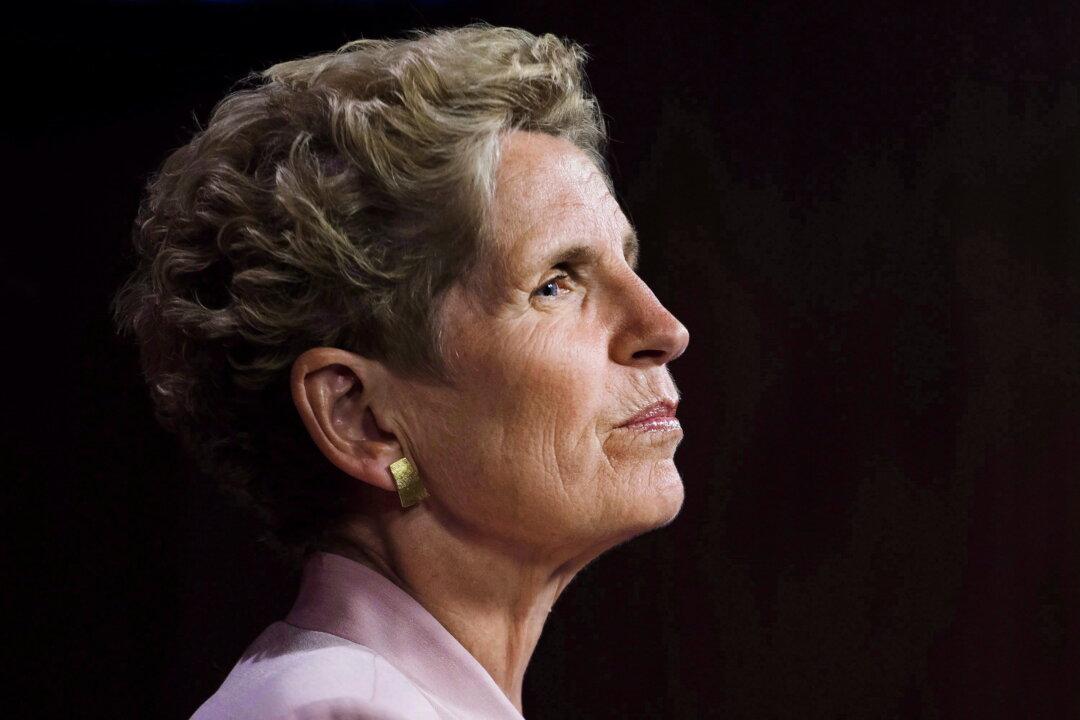Former Ontario Liberal premier Kathleen Wynne said in a recent interview with Maclean’s that she gives herself a low score on the energy file, and an affordable energy advocate is warning that the federal government is going down the same road Ontario took.
“I score myself very low on the electricity price. I believed that the investments that we had made in the electricity sector were important,” Wynne told Paul Wells of Maclean’s.





